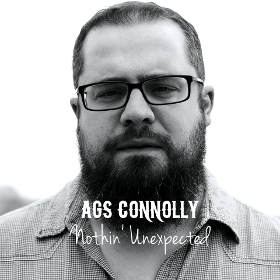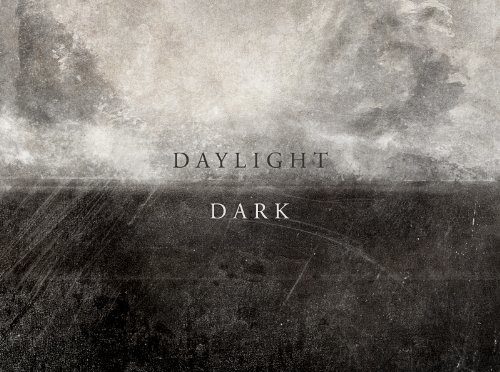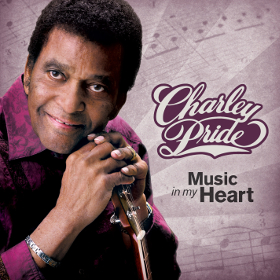Rating: 9/10
IN my pursuit of older 2017 albums, this has to be the coolest discovery. And yeah, I’ll be totally up front with this and say I wasn’t all that interested in listening to this when it came out because the track record of UK country artists is not the greatest, especially with me. Look, I’m not about authenticity in the sense that I couldn’t give two shits what background Midland come from as long as they produce good music, and they have. If you come from Georgia or New York or London, so be it. But equally, if you come from New York, Zephaniah Ohora, don’t inject a Southern accent, just be yourself. That’s what made This Highway such a great listen; it didn’t try to be anything it wasn’t, and that in turn made it authentic. Forget trying to be rural and/or Southern, Zephaniah Ohora knows he’s not, and he’s not going to try and sell you on it. British country artists notoriously won’t do this though–instead of using their unique British perspective as a cool feature, they often try faking Southern accents and using American slang to sound more authentic and just end up sounding fake in the process. Their music is probably often completely sincere, but I can’t seem to take any of them seriously, even if the music is good. So I just never really made time to listen to Ags Connolly until someone told me on Twitter it was the best 2017 album he’d yet heard, and I decided to give Connolly a shot.
“I Hope You’re Unhappy,” the album opener, doesn’t fully convince me on Ags either, as on this track, he does have an exaggerated accent (though not to the degree of many artists who do this), but something about the song keeps me listening. I want to like him because the lyrics are so catchy and because that fiddle is so great. And then “Do You Realize That Now?” comes on and just blows me away. This is easily the best song on the whole thing, and from here on, except for little inflections, you don’t hear an American accent. IN light of that, the opener can be somewhat forgiven as well; these inflections and phrasing seem to be more a result of careful, loving study of country music rather than an ill-advised attempt to imitate the style. The opener is still a bit too exaggerated for me, but there are some moments, like in the opening line of the title track, where there’s no R in “working” at all, wherein Ags Connolly is so openly British that it pretty much makes up for these concerns.
But what really makes this record shine is the way Ags Connolly calls bars “pubs” and “haunts” and frames a whole song around the phrase, “I suppose” in a context where Americans might say, “I think” or “I guess.” It’s these subtleties throughout the album that really convey a sense of authenticity and add a personal, unique quality to the stories portrayed here. They’re still universal enough to relate to people in the States, but the familiarity here will no doubt resonate even more strongly with those from Connolly’s homeland, much like the way songs about Texas stir the hearts of those from that region. Songs like the title track and “Haunts Like This” might remind you of any old place you used to frequent–there are certainly holes in the wall all across America too, or as Ags says, “haunts like this can be found in every town”–but hearing them sung in his way specifically calls to my mind little pubs in Wales and England. That’s cool for me as an American who only got to visit them for a second, so I can only imagine that it’s a pretty awesome and rare thing if you’re a British country fan to be able to relate even more to these songs. So British country artists, take note, and keep singing about your own stuff–it’s a feature, not a flaw.
Though a couple songs lean more toward folk, the majority of this record is very traditional in sound. I mentioned that Ags Connolly has obviously studied country music, and the result is a really entertaining listen. True, you only get a few faster songs, but the variety in instrumentation more than makes up for that. There’s the fiddle in the opener and in the excellent “Neon Jail,” the steel guitar in “I Suppose,” and the piano that pops up in various places throughout the album to cheerfully remind you that it’s an underappreciated instrument in country music and to ask you why so many of Ags Connolly’s stateside counterparts have forsaken it so casually. Its most prominent appearance is in the aforementioned ode to holes in the wall “Haunts Like This,” one of those songs you should just hear. Perhaps most amazingly, there is a supply of accordion on this record second only in 2017 to that on Aaron Watson’s latest album. That accordion pretty much makes the songs “Do You Realize That Now?” and “When the Loner Gets Lonely.” I can honestly say I haven’t heard a record in 2017 with this much focus on and variety in instrumentation; production, yes, but not instrumentation itself. And while we’re on that, let me also congratulate Ags Connolly on being one of the few singer-songwriter types to actually pay attention to his melody as much as his lyrics. I’ve harped on this before, but engaging melodies are just as vital as lyrics, maybe more so, because they keep songs from being boring. And so many of these artists treat melody as some sort of secondary element, focusing too much on words so that often those words are lost when they’re translated into uninteresting musical form.
That brings me to the lyrics themselves, which are mostly really strong, and with a couple standouts sprinkled in. I’ve mentioned “Do You Realize that Now?” enough already, but it excels lyrically too, telling a story somewhere between love and introspection. Actually, love is a theme explored quite a bit here, from the hopeful “I Suppose” to the regretful “Slow Burner.” There’s also a lot of nostalgia, like in the reflective “Fifteen Years” about past love and the more folk-leaning title track about returning to an old pub where he used to play and now misses the waitress he used to know who once worked there and the customers he used to see. Often, it’s not just the lyrics that stand out, however; it’s the combination of them paired with the stirring melodies and thoughtful instrumentation that work together to produce all-around great songs.
If I had to be nitpicky about anything, I suppose–yeah, might as well use Connolly’s word–it would be that it could have benefited from another upbeat track or two like “Neon Jail” and the opener, and if you like more variety in this area, I could see how it might be a little sleepy. Personally, I don’t care about this at all; I found it to be a nice, easy listen, but it’s a criticism I can understand, even if I don’t agree with it in the slightest. The only thing that personally bothers me at all about this entire album is the exaggerated accent on “I Hope You’re Unhappy,” and that that song really doesn’t quite fit in with the rest of the album in general. But there’s not much to say against this record, from the stories to the melodies to the instrumentation. Hell, Ags Connolly is a pretty good singer as well, which is a nice change from what is starting to be quite an unfortunately large number of singer-songwriters these days. Most importantly, Ags Connolly doesn’t try to be anything other than himself with this record, and the result renders it inherently unique and cool in the country space. My only regret is that I didn’t discover this sooner.




